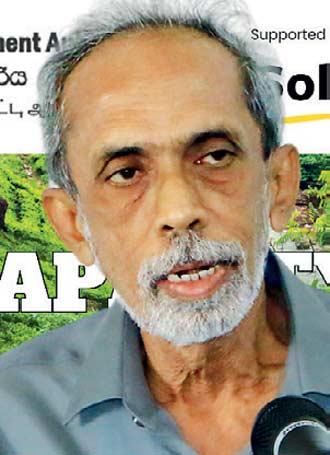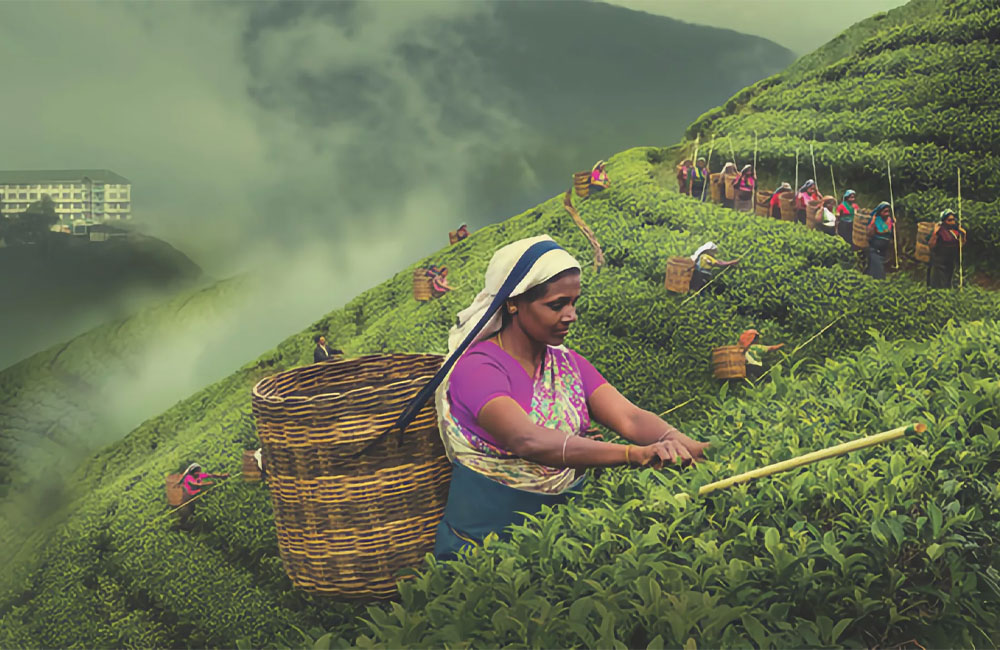Sri Lanka’s tea industrylong considered the backbone of rural livelihoods and a critical source of export revenue—is navigating a period of deep structural challenges even as the country prepares to assume the Chairmanship of the Asia Tea Alliance (ATA) for 2026–2027.
The appointment of Tea Small Holdings Development Authority (TSHDA) Chairman Nimal Udugampola marks the first time a smallholder-institution leader will head the regional alliance, signalling a shift toward greater smallholder influence in Asia’s tea value chains.
 (TSHDA) Chairman Nimal Udugampola
(TSHDA) Chairman Nimal Udugampola
The announcement comes at a time when the industry is under pressure from falling yields, rising production costs, labour shortages and declining global competitiveness.
According to 2025 export performance data, Sri Lanka’s tea export earnings fell to USD 1.16 billion in the first ten months, compared to USD 1.28 billion during the same period in 2024, while total tea production for January–October 2025 stagnated at 210 million kg, well below the historical average of 300–320 million kg.
Output from smallholderswho account for more than 75% of national production also dipped by nearly 8% due to extreme weather and fertiliser affordability issues.
Against this backdrop, Colombo will host the 6th ATA Annual Meeting and the Asia International Tea Summit 2025 on November 27 at Lotus Tower, under the theme “Tea Reimagined: Regenerative, Resilient and Carbon Free.”
The summit, led by Solidaridad Asia Managing Director Dr. Shatadru Chattopadhayay, is expected to stress sustainability, climate adaptation and fair value distribution across the supply chain. Minister of Plantations and Community Infrastructure Samantha Vidyarathna will attend as chief guest.
ATA’s agenda under Sri Lanka’s leadership will prioritise regenerative agriculture, climate resilience, equitable pricing, and stronger market linkageskey areas where the domestic industry is lagging. Dr. Chattopadhayay noted that collaboration, verified sustainability and market access are essential to rebuilding competitiveness, adding that Sri Lanka’s leadership comes “at the right moment” for the global shift toward decarbonised tea production.

However, local industry experts caution that broader reforms are urgently needed at home. Production costs continue to escalate as fertiliser and energy prices rise, while traditional marketsincluding the Middle East, Russia and Turkey have reduced purchasing volumes. Meanwhile, competitors like Kenya and India continue to gain market share with lower prices and higher output.
The government’s long-term target of 400 million kilograms of annual tea production by 2030 is seen as ambitious but achievableif accompanied by investment in new technology, replanting, climate-adaptation practices and consistent policy support. Of the 400 million kg target, 300 million kg is expected from smallholders, many of whom lack access to capital, extension services and modern cultivation techniques.
Addressing wage concerns, the TSHDA clarified that President Anura Kumara Dissanayake’s proposal to raise estate workers’ daily wage from Rs. 1,350 to Rs. 1,550 plus a Rs. 200 attendance incentive from January 2026 does not affect the Authority, as smallholder-sector workers typically earn higher incomes than those employed on corporate plantations.
As Sri Lanka prepares to lead the Asia Tea Alliance, the symbolic regional recognition offers momentum. Yet the country’s tea sectostill constrained by climate shocks, weakened productivity and global competition requires urgent and coordinated reforms to restore its economic strength.
